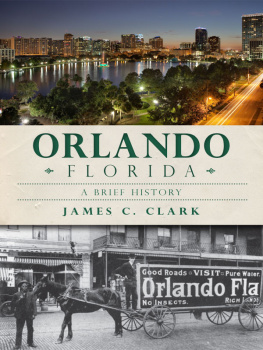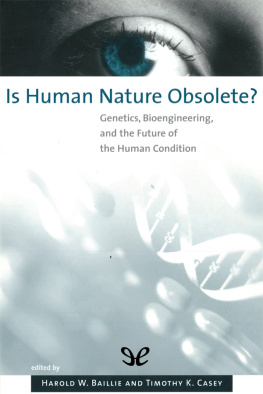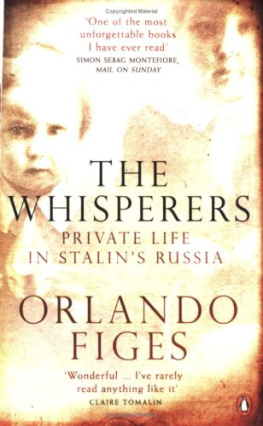Orlando - Obsolete Objects in the Literary Imagination
Here you can read online Orlando - Obsolete Objects in the Literary Imagination full text of the book (entire story) in english for free. Download pdf and epub, get meaning, cover and reviews about this ebook. year: 2006, publisher: Yale University Press, genre: Romance novel. Description of the work, (preface) as well as reviews are available. Best literature library LitArk.com created for fans of good reading and offers a wide selection of genres:
Romance novel
Science fiction
Adventure
Detective
Science
History
Home and family
Prose
Art
Politics
Computer
Non-fiction
Religion
Business
Children
Humor
Choose a favorite category and find really read worthwhile books. Enjoy immersion in the world of imagination, feel the emotions of the characters or learn something new for yourself, make an fascinating discovery.

- Book:Obsolete Objects in the Literary Imagination
- Author:
- Publisher:Yale University Press
- Genre:
- Year:2006
- Rating:3 / 5
- Favourites:Add to favourites
- Your mark:
- 60
- 1
- 2
- 3
- 4
- 5
Obsolete Objects in the Literary Imagination: summary, description and annotation
We offer to read an annotation, description, summary or preface (depends on what the author of the book "Obsolete Objects in the Literary Imagination" wrote himself). If you haven't found the necessary information about the book — write in the comments, we will try to find it.
Orlando: author's other books
Who wrote Obsolete Objects in the Literary Imagination? Find out the surname, the name of the author of the book and a list of all author's works by series.
Obsolete Objects in the Literary Imagination — read online for free the complete book (whole text) full work
Below is the text of the book, divided by pages. System saving the place of the last page read, allows you to conveniently read the book "Obsolete Objects in the Literary Imagination" online for free, without having to search again every time where you left off. Put a bookmark, and you can go to the page where you finished reading at any time.
Font size:
Interval:
Bookmark:
Obsolete Objects in the Literary Imagination
FRANCESCO ORLANDO
RUINS, RELICS, RARITIES, RUBBISH, UNINHABITED PLACES, AND HIDDEN TREASURES
Translated from the Italian by Gabriel Pihas and Daniel Seidel, with the collaboration of Alessandra Grego
Foreword by David Quint

Published with assistance from the Louis Stern Memorial Fund.
Copyright 2006 by Yale University. All rights reserved. This book may not be reproduced, in whole or in part, including illustrations, in any form (beyond that copying permitted by Sections 107 and 108 of the U.S. Copyright Law and except by reviewers for the public press), without written permission from the publishers.
Set in Sabon type by Keystone Typesetting, Inc. Printed in the United States of America.
Library of Congress Cataloging-in-Publication Data
Orlando, Francesco, 1934
[Oggetti desueti nelle immagini della letteratura. English]
Obsolete objects in the literary imagination : ruins, relics, rarities, rubbish, uninhabited places, and hidden treasures / Francesco Orlando ; translated from the Italian by Gabriel Pihas and Daniel Seidel, with the collaboration of Alessandra Grego ; foreword by David Quint.
p. cm.
Includes bibliographical references and indexes.
ISBN-13: 978-0-300-10808-8 (alk. paper)
ISBN-10: 0-300-10808-7 (alk. paper)
1. Exoticism in literature. 2. Picturesque, The, in literature. 3. Ruins in literature. 4. Literature, ModernHistory and criticism. I. Title.
PN56.E7807513 2006
809'.9332dc22
2005027649
A catalogue record for this book is available from the British Library.
The paper in this book meets the guidelines for permanence and durability of the Committee on Production Guidelines for Book Longevity of the Council on Library Resources.
10 9 8 7 6 5 4 3 2 1
Originally published in Italian as Gli oggetti desueti nelle immagini della letteratura: Rovine, reliquie, rarit, robaccia, luoghi inabitati e tesori nascosti, 1993 and 1994 Giulio Einaudi editore s.p.a., Turin. This translation is based on the revised and expanded 1994 edition.
In memory of my parents and their home
Plusieurs vrits spares, ds quelles sont en assez grand nombre, offrent si vivement lesprit leurs rapports et leur mutuelle dpendance, quil semble quaprs avoir t dtaches par une espce de violence les unes davec les autres, elles cherchent naturellement se runir.
Fontenelle, Prface sur lutilit des mathmatiques
From the age of nineteen to twenty-three, Francesco Orlando was the literary disciple in Palermo of Giuseppe Tomasi di Lampedusa, who offered him informal courses on English and French writers. To Lampedusas dictation, Orlando produced the typescript of the bulk of Il Gattopardo, and was thus present at the birth of the great novel. He has written a moving, two-part memoir of this formative, if also difficult relationship, as well as an indispensable critical study of Lampedusas masterpiece: Ricordo di Lampedusa seguito da Da distanze diverse (1996); Lintimit e la storia: Lettura del Gattopardo (1998). In a famous exchange that refers back to the novel itself, Prince Fabrizio, the Leopard of the title, tells the Piedmontese Baron de Chevalley about the artistic and intellectual belatedness of his native Sicily: novelties attract us only when they are dead, incapable of arousing vital currents. The dictum might already suggest the subject of Obsolete Objects in the Literary Imagination (Gli oggetti desueti nelle immagini della letteratura), and this Sicily might stand for Literature itself in Orlandos argument: the repository of the outmoded and the historically superseded. But, in fact, Orlandos study reveals, as if refuting Lampedusas formulation, the uncanny affective afterlife that literature affords to things past.
Now Professor of French Literature at the University of Pisa, Francesco Orlando is one of the worlds leading literary theorists and a scholar-critic whose grasp of literary history recalls such masters as Erich Auerbach and Ernst Robert Curtius. As the culmination of his critical studies, Obsolete Objects in the Literary Imagination represents both sides of Orlandos achievement.
In his earlier work, available in English as Towards a Freudian Theory of Literature, with an Analysis of Racines Phdre (1978), Orlando found a model for the capacity of the literary text to say two contradictory things at oncethe ambiguity so prized by Anglo-American New Criticismin the concept of Freudian negation. For Orlando, the real lesson of Freud for literary interpreters lies not in detecting psychoanalytically charged motifs in the text (the phallic symbol, the mothers body), nor in reading it as a key to its authors biography. It lies rather in Freuds model of the unconscious as that which the conscious, rational mind represses, but which nonetheless surfaces in the neurotic symptom as the return of the repressed. Orlando distinguishes literature as a communicating language between author and reader from the noncommunicating language of the unconscious; it nonetheless operates by the same logical structure of an incomplete and ambivalent negation. Drawing on the concept of the tendentious joke in Jokes and Their Relation to the Unconscious, which he contends is Freuds most direct and productive confrontation with the literary, Orlando asserts that literature or poetry is the seat of a socially institutionalized return of the repressed. Literary works, that is, give a home and a voice to the desires, values, and ideas that a dominant culture rejectsas these works, too, may officially reject themand thereby surreptitiously give them what Orlando terms a semipositive valorization. The social function of literature is thus to be a safety valve in which the discontents of civilization can be pleasurably discharged; it is by its nature subversive of cultural orthodoxy, and in this sense Plato was right to banish poetry from his utopian and inhuman republic. Because, moreover, the repressions of the dominant culture change over time, it is possible to historicize this model and to view the literary text as the site of continuing, unresolved social conflict: a model in literary studies for a reconciliation of Freud and Marx.
Orlando does not limit this model to the subject matteror in Louis Hjelmslevs terms, the content-purportof literature. It applies, too, to its formal elements. Orlando reminds us that the figures of classical rhetoric (figures that at the time he wrote were being studied anew by French semioticians) were knowing abuses of logic, designed to persuade and to give pleasure. Such figures complicate an ideally transparent or straightforward communication, and they can perhaps expand to include all devices of fiction-making that, in the terms of the Russian formalists, cause estrangement: they are to be understood, Orlando suggests, as the return of a repressed infantile pleasure in playing with words and meaning. For this reason, as Orlando contends in his brilliant study of Enlightenment literature and thought, Illuminismo, barocco e retorica freudiana (1982; 1997), the lumires of the late seventeenth and eighteenth century attacked metaphor itself as a regressive mental activity, characteristic of an immature, childish stage of human culture, and aligned it with the superstition of Christianity they sought to dispel. Nonetheless, Orlando, true to his model of literature as a semiotic compromise-formation which allows one to say yes or no to anything simultaneously, notes a nostalgia even in these Enlightenment polemics for the very religious culture, including the pleasures of its mythopoesis, that the
Next pageFont size:
Interval:
Bookmark:
Similar books «Obsolete Objects in the Literary Imagination»
Look at similar books to Obsolete Objects in the Literary Imagination. We have selected literature similar in name and meaning in the hope of providing readers with more options to find new, interesting, not yet read works.
Discussion, reviews of the book Obsolete Objects in the Literary Imagination and just readers' own opinions. Leave your comments, write what you think about the work, its meaning or the main characters. Specify what exactly you liked and what you didn't like, and why you think so.

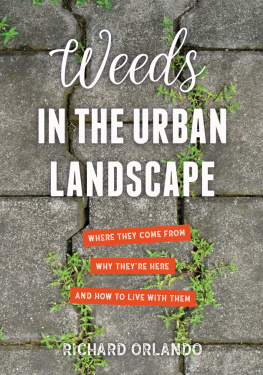

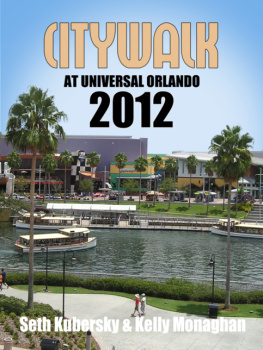

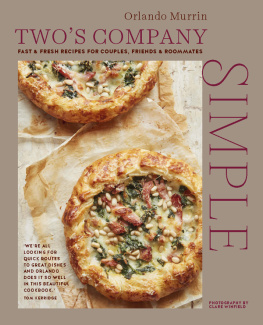
![Laura Lea Miller - Frommers Walt Disney World & Orlando with kids [2010]](/uploads/posts/book/213893/thumbs/laura-lea-miller-frommer-s-walt-disney-world.jpg)
